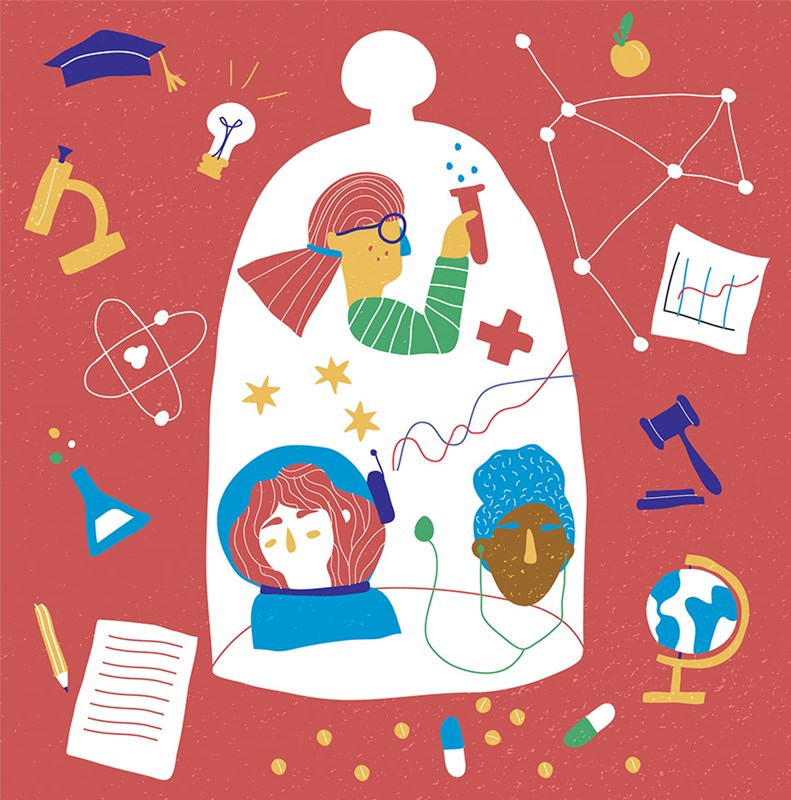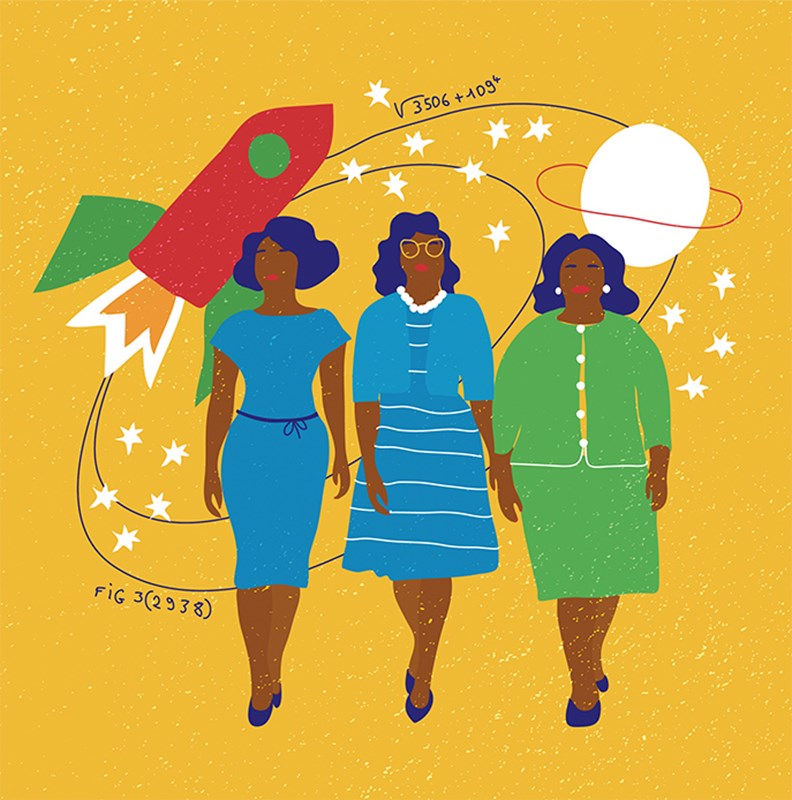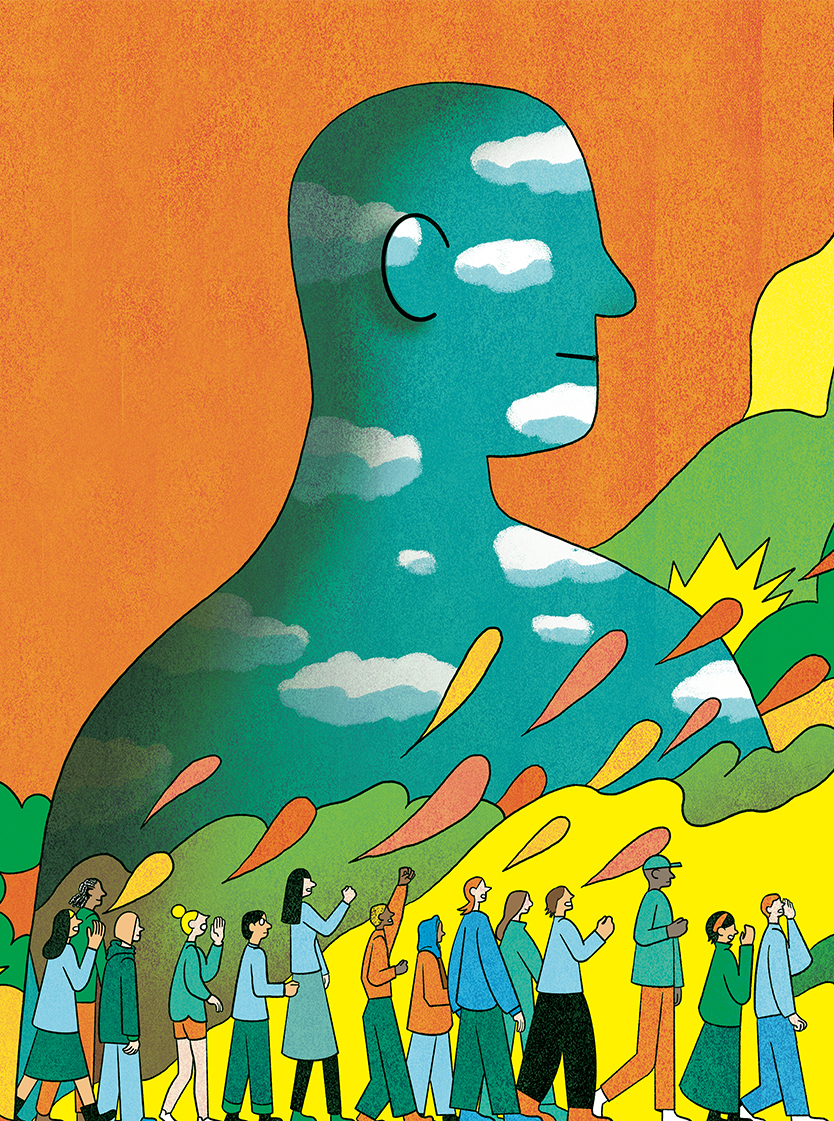How bad history feeds bigotry
By Rt Hon. A. Kim Campbell

Ève Gentilhomme

Advocating for greater gender inclusion in all areas of life continues to be a lifelong mission for the former Prime Minister of Canada, The Rt Hon. A. Kim Campbell, who writes that we will never have a more just and inclusive future until we have a more just and inclusive view of our past.
When I was a young woman, men would often say to me, ‘You argue that girls are as smart as boys, but where are the female Mozarts and Einsteins?’ The implication was that while women may be ‘bright,’ since they did not have the capacity to contribute to the same degree as did men, there was no reason to admit them into opportunities that gave men the chance to excel.
Throughout my life, I have had the opportunity to break barriers for women; at least to do things that had not been done before by a woman. I am not sure I could say I always broke a barrier as in some cases, such as being Prime Minister of Canada, I am still the only woman to have done this. Because of my history and the values I was raised with, I have spent much of my life trying to understand barriers to women’s participation in the important activities of society and advocating for greater gender inclusion in all areas of life. What I learned over the years is that my own youthful understanding of the contributions of women was woefully incomplete.
What I have since discovered is that women have made major foundational contributions to fields such as mathematics, physics, astronomy, chemistry, computer science, and so on. Why was this not common knowledge? First of all, if you are seen as an anomaly, an exception, you are not worth remembering because there is no pattern, and so there is no reason to change your views.
Also, to include women in the pantheon of great scientists and discoverers would require a revision of the ‘model’ of such people as being (usually white) males. There are many interests that are threatened by a more gender-inclusive approach to human accomplishment.

“Our world is facing huge problems that require human societies to collaborate”
Rt Hon. A. Kim Campbell
At the beginning of the 20th century, for example, there was a concerted campaign by male doctors to keep women out of medical schools. Men realised that if women became doctors, many female patients would prefer to be treated by female doctors and this would threaten the livelihood and status of male doctors. It is a well-documented phenomenon that occupations dominated by women are generally low status and low paid. Allowing women into the medical profession was regarded by many male doctors as a threat. Reading the biographies of the remarkable women who nonetheless made their marks alongside the better known men, one is struck by the barriers put in their way and the enormous strength required by them to pursue their chosen disciplines.
Over the years I have come to see this practice of excluding people from the historical narrative as key to other forms of bigotry and discrimination. The film Hidden Figures about three female African American mathematicians at NASA showed the double challenge they faced for their gender and race. Watching the movie I felt a sense of rage – why didn’t I know about these women until this movie? The film has raised their profile and restored their place in the historical narrative of the American space programme, to which they made essential contributions.
African Americans have struggled to be reflected fairly and accurately in the historical narrative of the United States. This is not just a matter of lazy historians or of people who cannot see outside their own realities. There is a clear agenda to historical exclusion. The slaveholder mentality required the creation of a particular view of African Americans as inferior people, particularly after the Civil War, and history became a powerful weapon for this.

When President Trump held his well-publicised rally in Tulsa, it brought the Tulsa Massacre to the attention of many who had not known the story, which destroyed a prosperous African American community – sometimes referred to as ‘The Black Wall Street’. The importance of promoting a view of racial inferiority meant that white supremacists had to destroy any evidence of black capacity and accomplishment. The combination of oppression and control of the narrative was a powerful force against racial minorities everywhere.
When we want to hate people, the last thing we want to know is that they have made important contributions to human civilisation. After 9/11, a common refrain from Islamophobes was the denial that Islamic cultures had given anything to human society. Great achievements in mathematics (i.e. Arabic numbers!) and astronomy, for example, were simply unknown to such denouncers. There are many other examples of how such ignorance makes hate and bigotry much easier.

I sometimes feel ashamed when I realise that I have judged other societies on the basis of self-serving historical narratives, such as the justifications for colonialism. Seeing marginalised people as historical actors whose societies were not blank slates when colonisers arrived may make me feel guilty, but it also makes me feel enriched. President George W. Bush once referred to ‘the bigotry of low expectations’. But he might more accurately have referred to ‘the lies of low expectations’ that come from the willingness of people to see a person’s circumstances separate from the conditions that created them.
Our world is facing huge problems that require human societies to collaborate and pool their resources of ingenuity. We need to learn how to value people who are not like us and, to appreciate the capacity of all people to contribute to the solutions of our problems.
Where societies are not innovative or productive, it is usually less a reflection of the abilities of a people but rather a reflection of governance and social conditions that discourage discovery and cooperation. We need to challenge understandings of history that marginalise people or justify their exploitation.
My interest in finding out the true state of women’s achievements has led me to pursue analogous searches about other people. I truly believe that righting the historical records is key to creating the kind of respect that we need to come together as a human family.
I believe we will never have a more just and inclusive future until we have a more just and inclusive view of our past.








